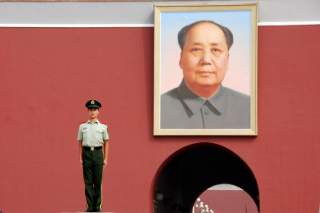Facts and Values: On China’s Political System
"Political meritocracy" really is the best description of how China functions today.
All the innovations of modern democratic societies, such as open public hearings, deliberative polling and referenda on key issues, could help to stabilize the political system. And more firmly establishing the rule of law is necessary to protect individual rights.
Would such developments mean an inevitable march to electoral democracy at the highest levels of government, as Nathan favors? Not necessarily. The worry remains among many Chinese, and not just those in positions of power, that fully democratic elections could bring China back to its chaotic days of civil war and weakness vis-à-vis outside powers. Electoral democracy might also wreck the advantages of the current political model, which still filters out the duds and encourages political experience and long term planning.
Even with more political openness, in short, the Chinese political system will need to select leaders with superior qualities. Nathan claims “the biggest problem with Bell’s theory of meritocracy is that the idea of getting quality leaders to make high-performance decisions is based on the notion that there are right and wrong decisions.” I agree that decisions cannot be free of controversy, but some decisions are better than others: at least, we expect political leaders not to make disastrous decisions when it comes to dealing with climate change, invading other countries and promoting sustainable growth. Nathan thinks electoral democracy is a one-size-fits-all solution for the selection of leaders able to deal with complex problems of a large country. I think we should be open to the alternatives offered by Chinese political culture.
Daniel A. Bell is Chair Professor of the Schwarzman Scholar Program at Tsinghua University in Beijing and director of the Berggruen Institute of Philosophy and Culture. He was born in Montreal, educated at McGill and Oxford, has taught in Singapore, Hong Kong and Shanghai, and has held research fellowships at Princeton’s University Center for Human Values and Stanford’s Center for Advanced Study in the Behavioral Sciences.
Image: Flickr/Ken Douglas

